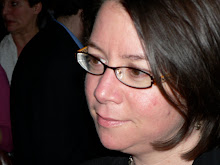Jordan's writing therapy is moving fast. He has a new pencil grip that he uses consistently when doing writing exercises, and also uses voluntarily a good fraction of the time when he is at school or at home. He has revised his letter formation for almost every letter, with only some relapses on n, m, r, and p when he's writing quickly. After lessons in grip and letters, he had a few weeks of useful guidelines for spelling, and is now into composition.
The spelling was fascinating. Apparently, those of us who can spell reasonably well know a lot of rules for spelling that we do not know that we know. It's not just that we have memorized how to spell a lot of words: I can tell because I can make up non-words that you will know the right way to spell. For example, piff: You know it ought to have two F's. You can say "Well, it's like cliff," but it's also a lot like pin, and pin only has one N. Without being consciously aware of it, many of us know what Jordan's writing therapist calls the flsz rule, pronounced "falls": The letters f, l, s, and z are doubled when they follow a short vowel in a one-syllable word. Piff has two F's because F is a flzs letter; pin has one N because N is not a flsz letter. How about that? Jazz, clip, boss, shell, run: not jaz, clipp, etc. Isn't that something?
Some of the spelling guidelines come with stories that make them more memorable. Clarence, I have learned, is the name of the letter C. Clarence makes two sounds, /s/ and /k/. Clarence would like to make the /k/ sound more because he thinks it's cool. But the letter K is in charge of the /k/ sound. So Clarence asks the letter K if he can make the /k/ sound sometimes. Now K, it turns out, is a bit shy. She especially does not like to go first. So she offers to make a deal with Clarence: "If the /k/ sound comes at the beginning of a word, Clarence, you can go first and make the /k/ sound instead of me." Clarence says, "That's great; I'd love to do that. But I have already made a deal with I, E, and Y that anytime I come before one of them, I will make the /s/ sound. So sometimes you will still have to go first." K agrees to this. Therefore, cool, carry, cut; cell, cider, cyan; keep, kick. Isn't that great? Who knew? Me, apparently, but I didn't know I knew.
C and K also have another deal, for which you have to know that short vowels are also called "baby vowels." This is for two reasons: 1. they make kind of babyish sounds, and 2. they are never left alone. They always need a babysitter to come after them. ("Teenage vowels," on the other hand, say their own names, and prefer to be alone, as in he, hi, and no.) Some letters are very good babysitters, like T and P: they take good care of a baby by helping it say its proper sound. Sit, pot, nap. Other letters are terrible babysitters, like crazy R, who lets the baby do something unpredictable: her, war, far, fir. K, it turns out, because she is a little bit shy, likes to ask C to help her when she has to babysit. Thus back, sick, lock, tuck, peck.
English being what it is, most of these guidelines have exceptions. But still, they are very useful. The goal is to never have to say to Jordan, "You spelled that wrong, it's like this, memorize that," because it doesn't help him learn how spelling works. Instead, we can say "Oh, that's a flsz word," or "Remember Clarence," which cues some organizing principles.
Sunday, December 29, 2013
Subscribe to:
Post Comments (Atom)

1 comment:
You made my day! I remember when you gave me a made-up word and I tried to spell it, it didn't went the way you were expecting. Now I will save this post to re-read it every now and then.
This is very helpful for those who are not that aware of the rules.
Post a Comment